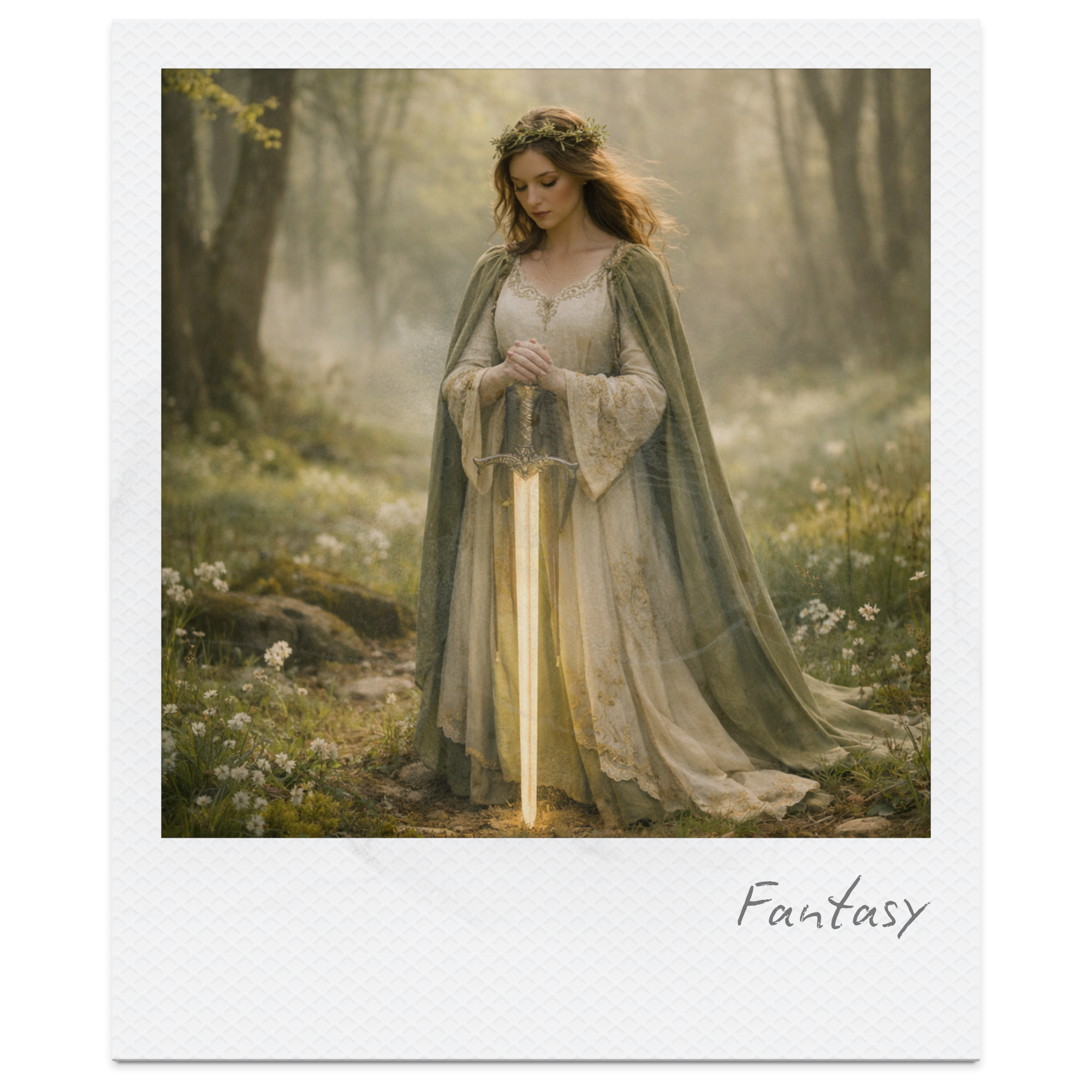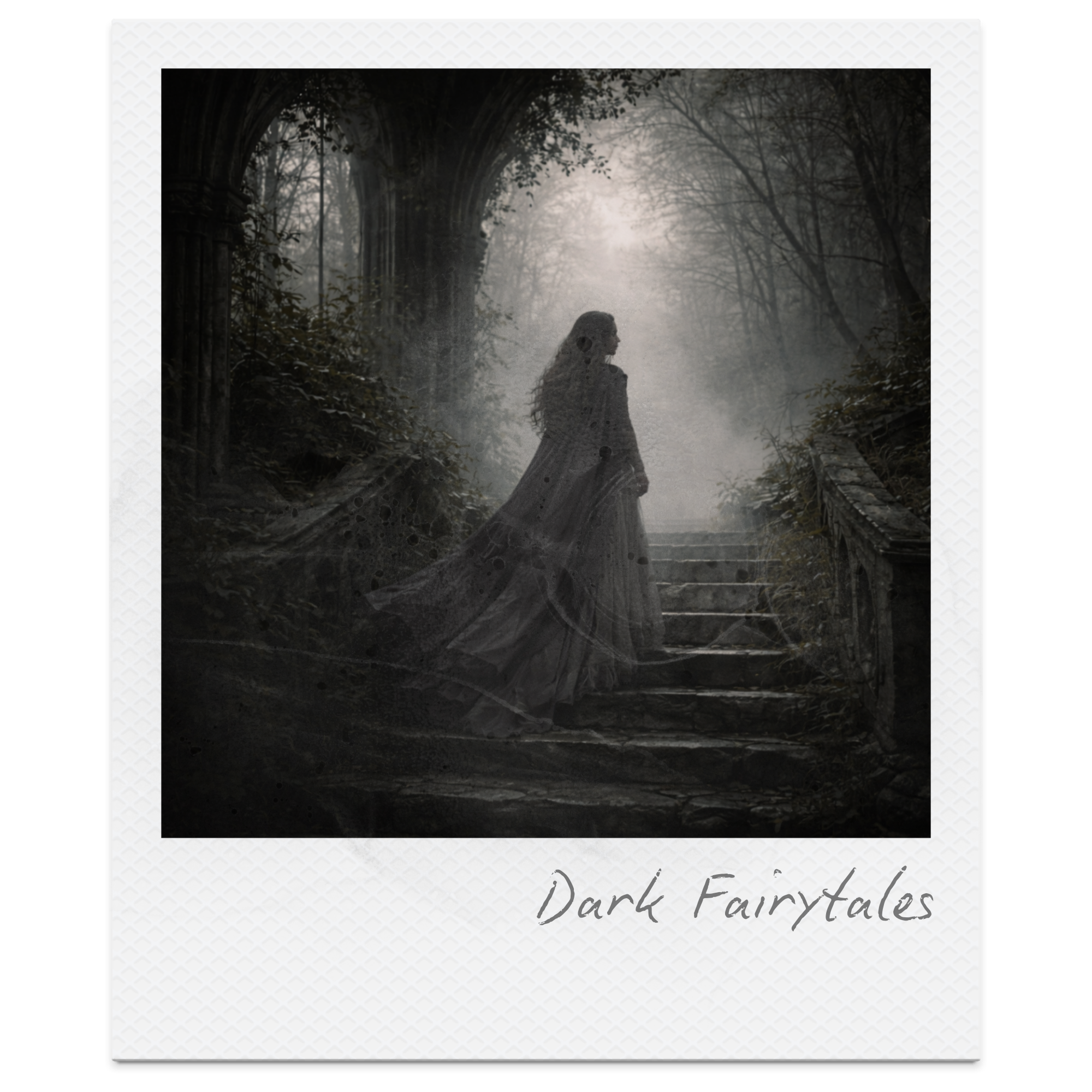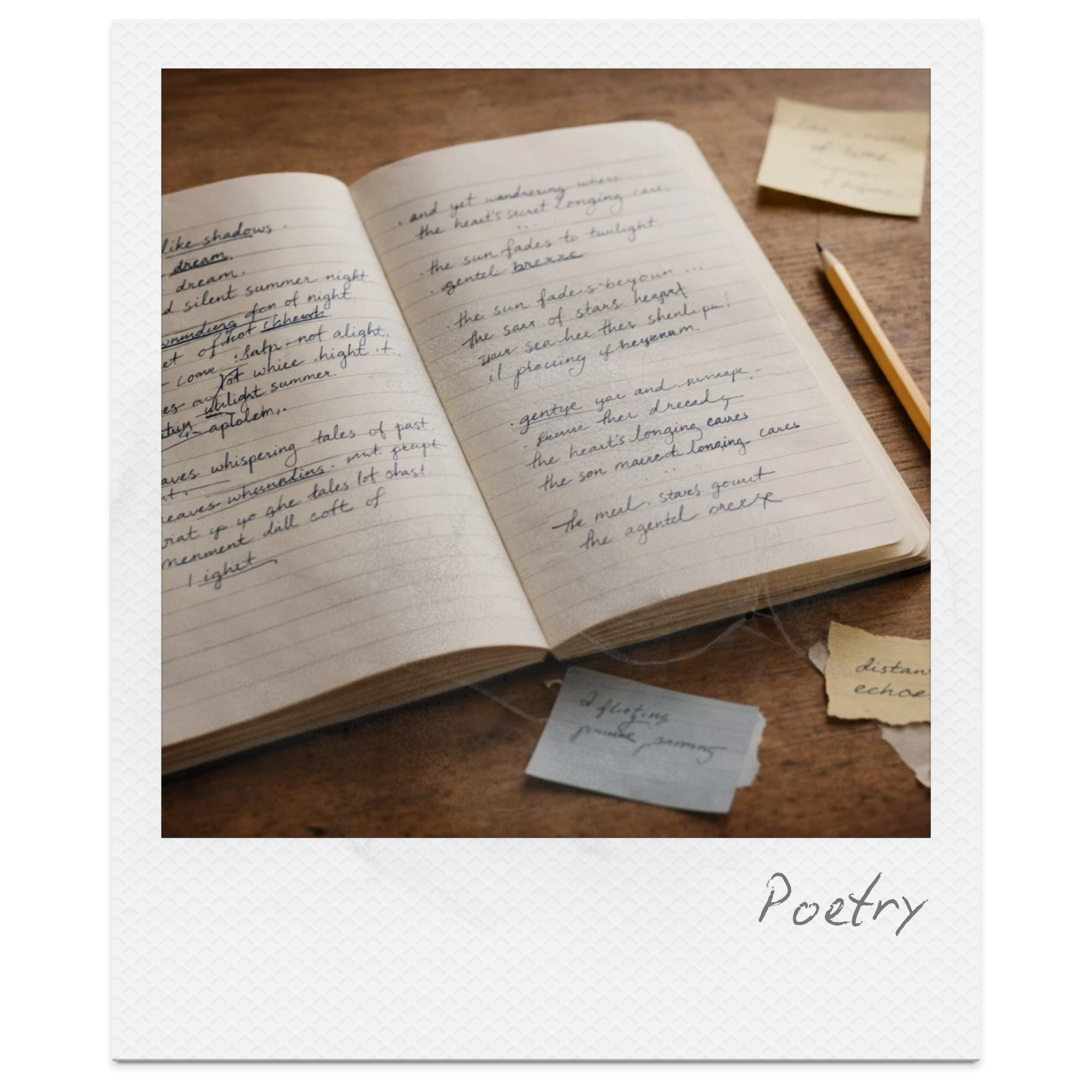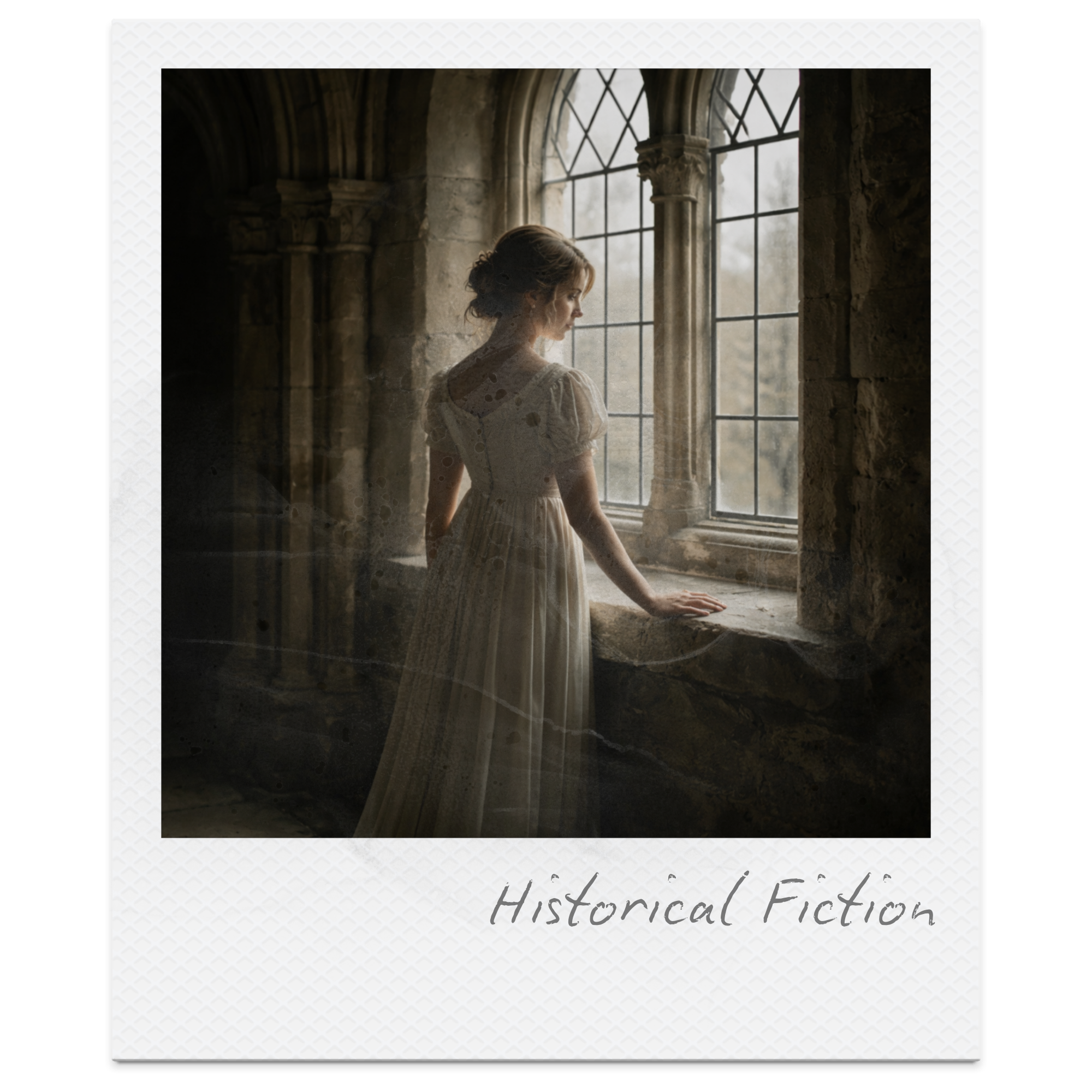70 Mythology Writing Prompts for Teens: Story Starters, Titles, Characters, Settings & Visual Ideas
Mythology has always been about more than gods and monsters. Greek and Roman myths explore power, fate, love, betrayal, justice, and the mysteries of life and death — themes that still shape storytelling today. From Olympian gods and fallen heroes to oracles, underworld journeys, and impossible moral choices, classical mythology offers teen writers a rich foundation for meaningful, imaginative stories.
These mythology writing prompts for teens are inspired primarily by Greek and Roman mythology and are designed to support creative writing in classrooms, writing clubs, and independent study. Inside this collection, you’ll find myth-inspired plot hooks, evocative story titles, character archetypes, immersive settings, and visual ideas that encourage students to reimagine ancient myths or create entirely new stories shaped by classical themes.
Whether you’re teaching epic poetry, exploring Greek myths such as Persephone, Orpheus, and Athena, examining Roman ideas of power and legacy, or simply looking for high-quality creative writing prompts based on mythology, this collection blends ancient storytelling with modern imagination.
If you’re looking to explore more genres, tropes, or seasonal collections, you can browse the full master list of 2,000+ creative writing prompts here.
1. Plot Hooks
Mythology thrives on epic quests, impossible bargains, divine punishment, and the fragile boundary between mortals and gods. These mythology-inspired story starters draw on Greek and Roman myths, encouraging teen writers to explore fate, power, sacrifice, hubris, and the consequences of defying the divine.
Write about a teenager who discovers their family was once cursed by a Roman god — and that the curse has begun to resurface.
Write about a mortal who steals a sacred gift meant only for the gods, believing it will save someone they love.
Write about a modern city built over ancient ruins, where statues of forgotten gods begin to move after nightfall.
Write about a hero tasked with destroying a monster that changes its form each time it is defeated, forcing the hero to confront their own weaknesses.
Write about a school where myths discussed in class begin manifesting in students’ lives — punishments, blessings, and prophecies included.
Write about a character who must journey to the underworld to retrieve a loved one, knowing they are forbidden to look back.
Write about someone who enters a binding agreement with a trickster god and slowly realises the god never lies — only omits the truth.
Write about a war decided not by weapons, but by prophecies written in the stars and interpreted by rival oracles.
Write about a demigod who rejects their divine heritage, only to be forced to choose between anonymity and saving their city.
Write about a forgotten goddess who returns to reclaim her place, only to discover the world no longer remembers how to worship her.
2. Title Ideas
Mythic titles often carry as much meaning as the stories themselves. In Greek and Roman mythology, names hint at destiny, punishment, divine favour, or inevitable downfall — long before the story unfolds. A single title can suggest an oracle’s warning, a broken vow, or a bargain struck with the gods.
These myth-inspired titles are designed to spark short stories, poems, or full narrative arcs. They draw on classical imagery from Greek and Roman myths, encouraging teen writers to explore fate, power, memory, and the fragile relationship between mortals and the divine.
The Last Oracle of Delphi
Chains of the Sun
The Shadow Beneath Olympus
The Serpent’s Bargain
Wings of Wax and Salt
The Labyrinth Without an Exit
The Forgotten Gods of the Forum
Ashes on the Altars
The River That Forgets Names
The Crown That Demanded Blood
3. Opening Lines
The best myths rarely begin at the beginning. In Greek and Roman storytelling, narratives often open at the moment when fate intervenes — when a warning is ignored, a god takes notice, or a single decision sets disaster in motion. These opening lines place writers directly inside mythological moments shaped by prophecy, divine interference, and irreversible choice.
Lightning split the sky, and I knew a god was watching.
The oracle’s words followed me long after I left the temple.
No one believed me when I said the gods had not gone silent.
The doors of the labyrinth opened only when I spoke my name.
I found the shield half-buried in the sand, still warm to the touch.
The stranger’s eyes reflected constellations I did not recognise.
The monster wore my brother’s face, and the gods did nothing to stop it.
At dawn, the statue turned its head, and I realised it had been waiting.
The offering vanished before it reached the altar stone.
My fate had been carved long before I ever learned my own name.
4. Closing Lines
Myths rarely end with victory. In Greek and Roman storytelling, endings are shaped by sacrifice, transformation, memory, and the lasting consequences of defying fate or the gods. These closing lines are designed to leave stories echoing — reminding readers that power is never free, and that every myth carries a cost.
The gods were watching, and for the first time, I did not look away.
My story was not written in the stars, but it was shaped by them.
I left the crown on the stone throne and did not return for it.
The labyrinth closed behind me, as if it had never existed.
He vanished into the mist, leaving only the echo of wings overhead.
I heard her voice in the river one last time, and then the water fell silent.
The curse was broken, but nothing else was restored.
I lit the fire, knowing the world would never be the same again.
They would remember my name, even if they misunderstood it.
The gods fell silent — and the silence endured.
5. Character Ideas
Greek and Roman mythology is shaped by figures who exist between worlds — mortals touched by the divine, gods bound by fate, and humans who suffer the consequences of being noticed by Olympus. These characters are rarely simple heroes or villains. They are defined by sacrifice, hubris, loyalty, and the cost of power.
These character prompts are designed to help teen writers create original myth-inspired figures while drawing on classical archetypes such as demigods, oracles, warriors, and poets shaped by divine influence.
A demigod raised among mortals who hides their divine lineage to avoid attracting the attention of the gods.
A modern oracle whose visions arrive as fragmented riddles, never revealing whether they warn or condemn.
A trickster figure blessed by a god of deception, cursed to wake each day in a different identity.
A hero condemned by the gods to relive the same battle every night in their dreams, unable to change the outcome.
A goddess of memory who begins to forget her own myths as mortals stop telling them.
A Roman warrior offered immortality as a reward for loyalty — and forced to decide whether eternity is worth the cost.
A student who discovers their teacher is a god in disguise, quietly shaping events from the classroom.
A shapeshifter marked by the gods who can change form, but never by choice.
A mortal selected to carry a divine weapon meant for a god, knowing it will shorten their life.
A poet whose words begin to reshape reality, creating new myths faster than the old gods can control them.
6. Setting Ideas
In Greek and Roman mythology, settings are never neutral. Places carry memory, punishment, blessing, and divine presence — from cursed islands and sacred mountains to temples, rivers, and battlefields shaped by fate. These mythic settings are designed to act as forces within the story, shaping characters’ choices and determining outcomes long before the gods appear.
An island cursed by the gods, where storms never cease and no ship is meant to leave.
A modern city built directly over ancient temples, where construction disturbs long-forgotten gods.
A cavern said to echo every word ever spoken within it, preserving oaths, lies, and prophecies.
A marketplace that appears only at twilight, where mortals unknowingly bargain beside gods in disguise.
A sacred forest where the trees whisper the names of fallen heroes to those who listen.
A river that flows only at night, believed to carry memories, souls, or forgotten promises.
A ruined temple that rebuilds itself at dawn, erasing all evidence of what happened there the day before.
A battlefield suspended in time, where the final blow was never struck and warriors still wait.
A mountaintop altar where offerings burn continuously, regardless of wind or weather.
A hidden library said to contain every myth ever told — including those that have not yet happened.
7. Picture Prompts
Greek and Roman myths are deeply visual — shaped by statues, temples, ritual objects, and symbolic landscapes that carry meaning beyond what is seen on the surface. Strong imagery has always been central to mythological storytelling, from carved stone and sacred fire to rivers of the underworld and ruined altars.
These mythology picture prompts are designed to support vivid descriptive writing and imaginative interpretation. Each image encourages writers to infer history, power, and consequence, blending visual detail with mythological themes such as fate, devotion, memory, and divine intervention.
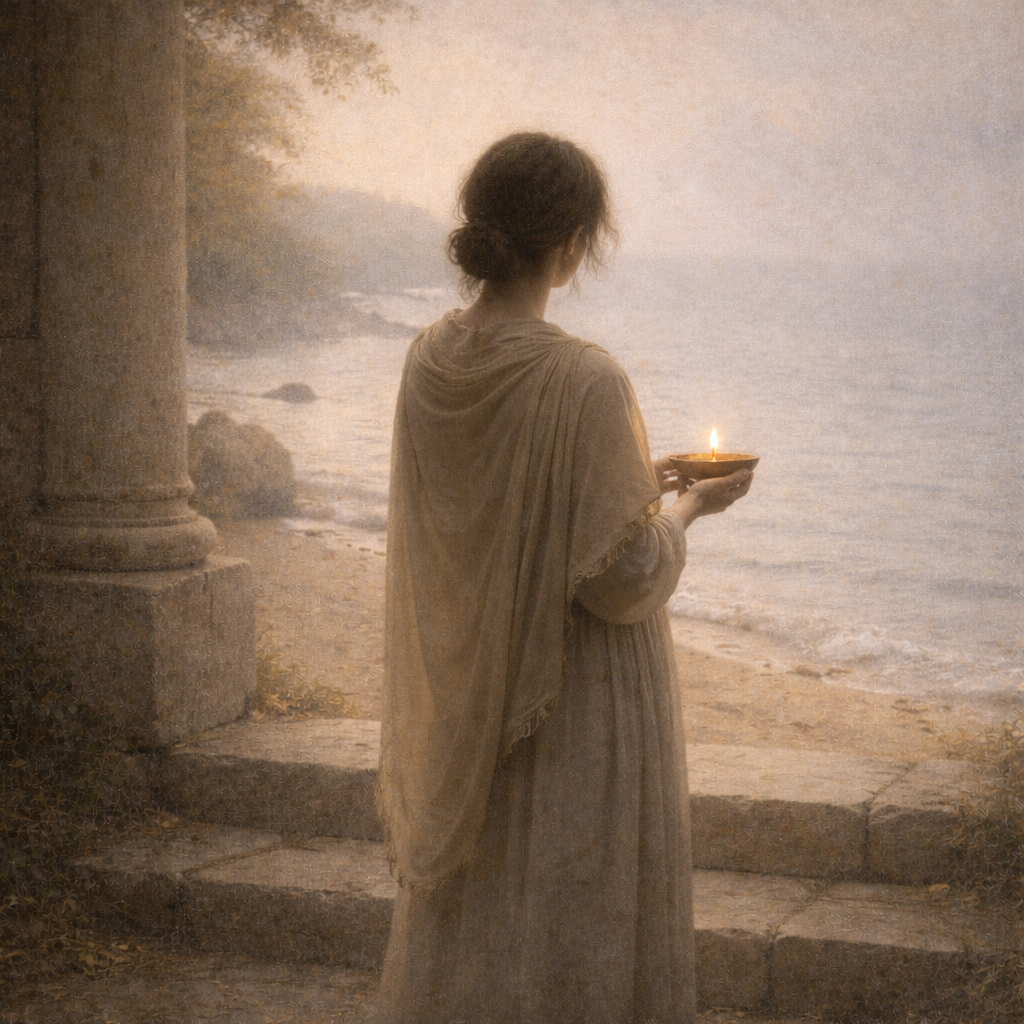
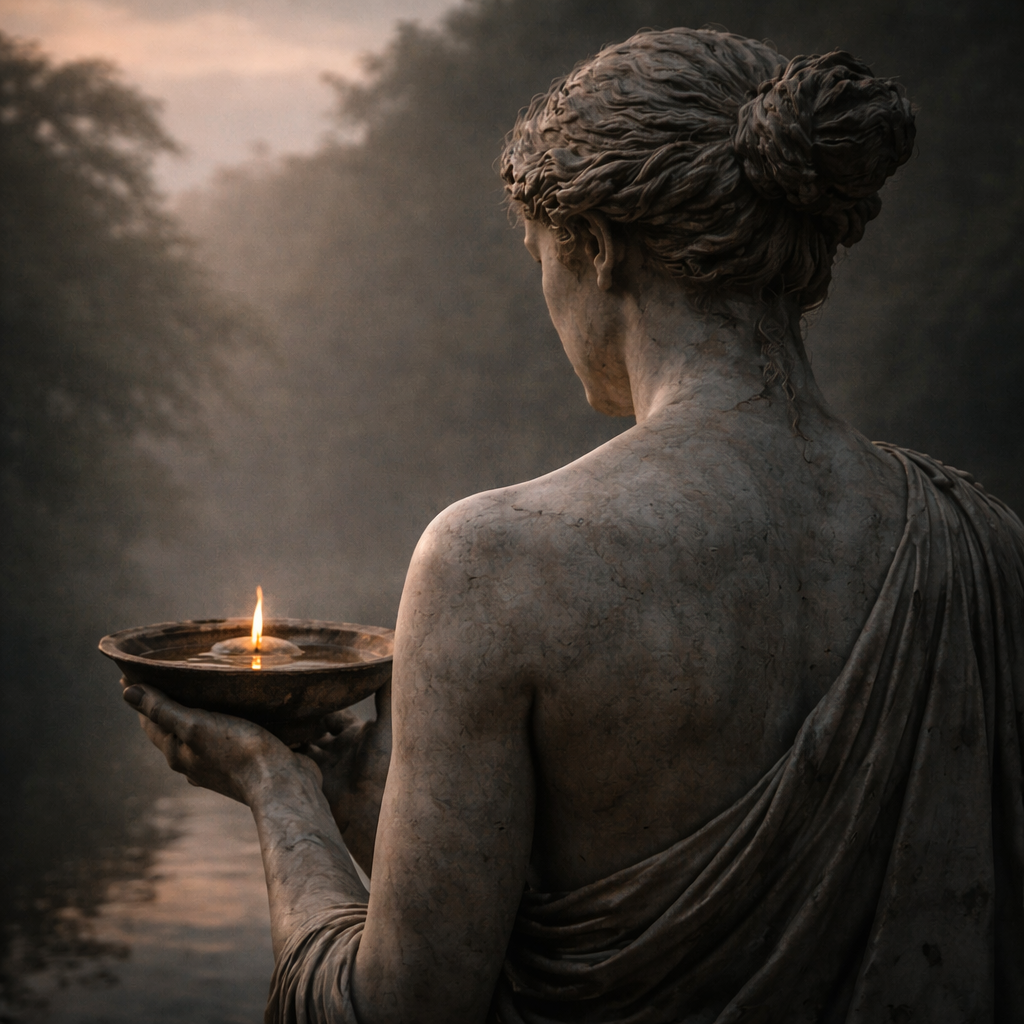
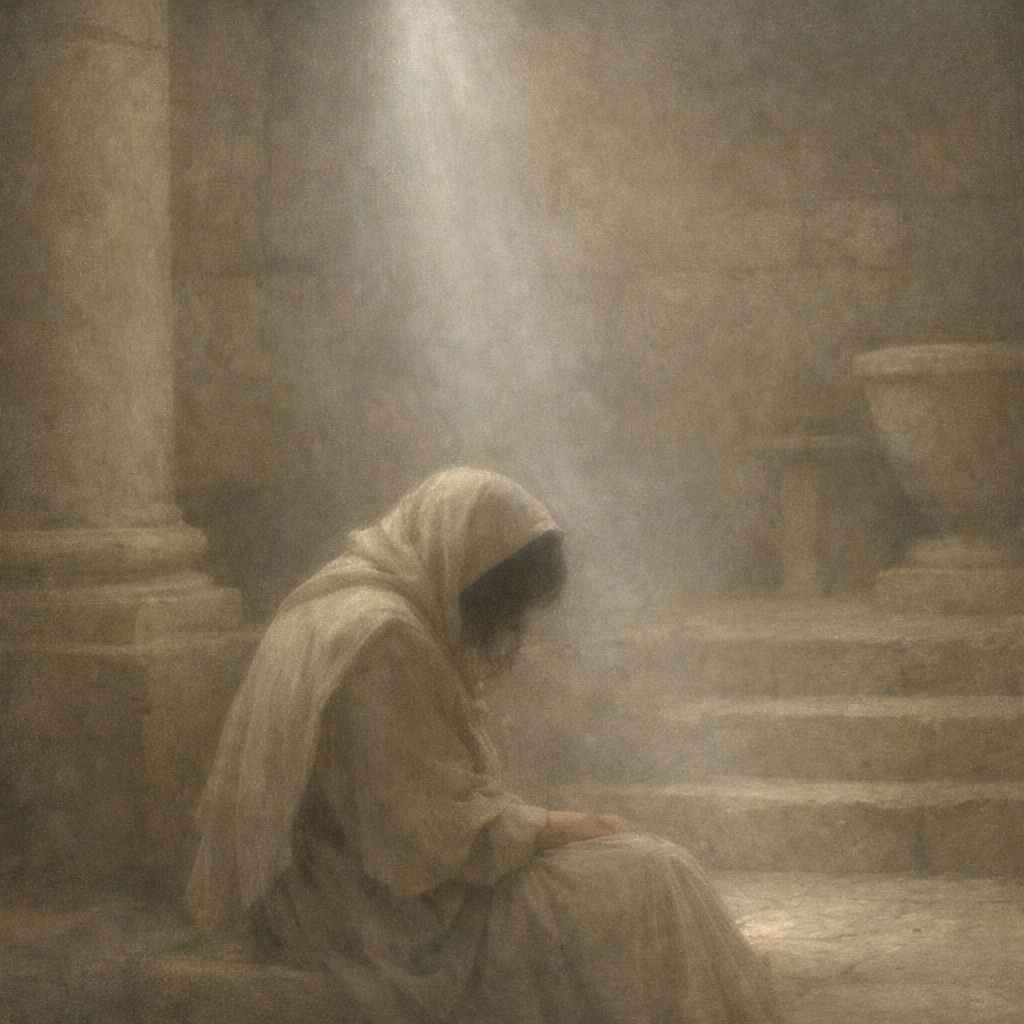
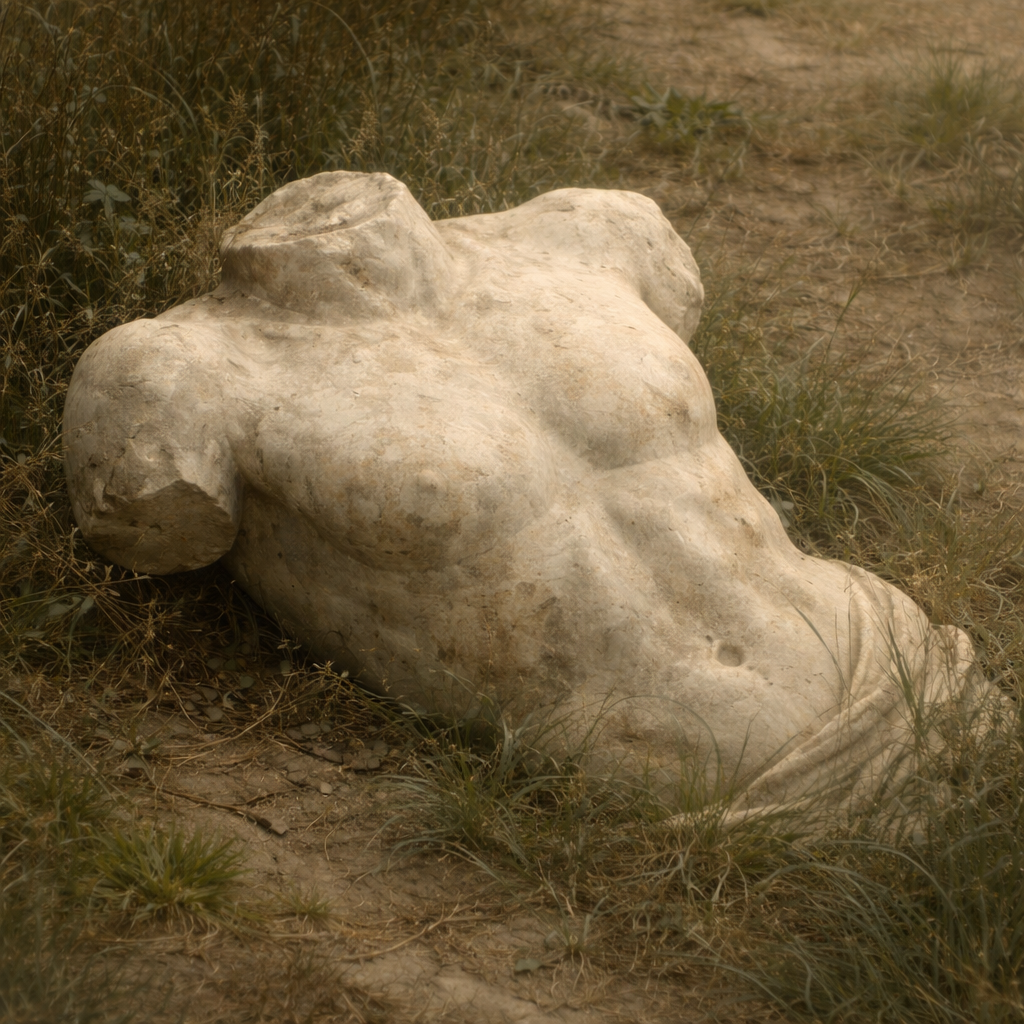

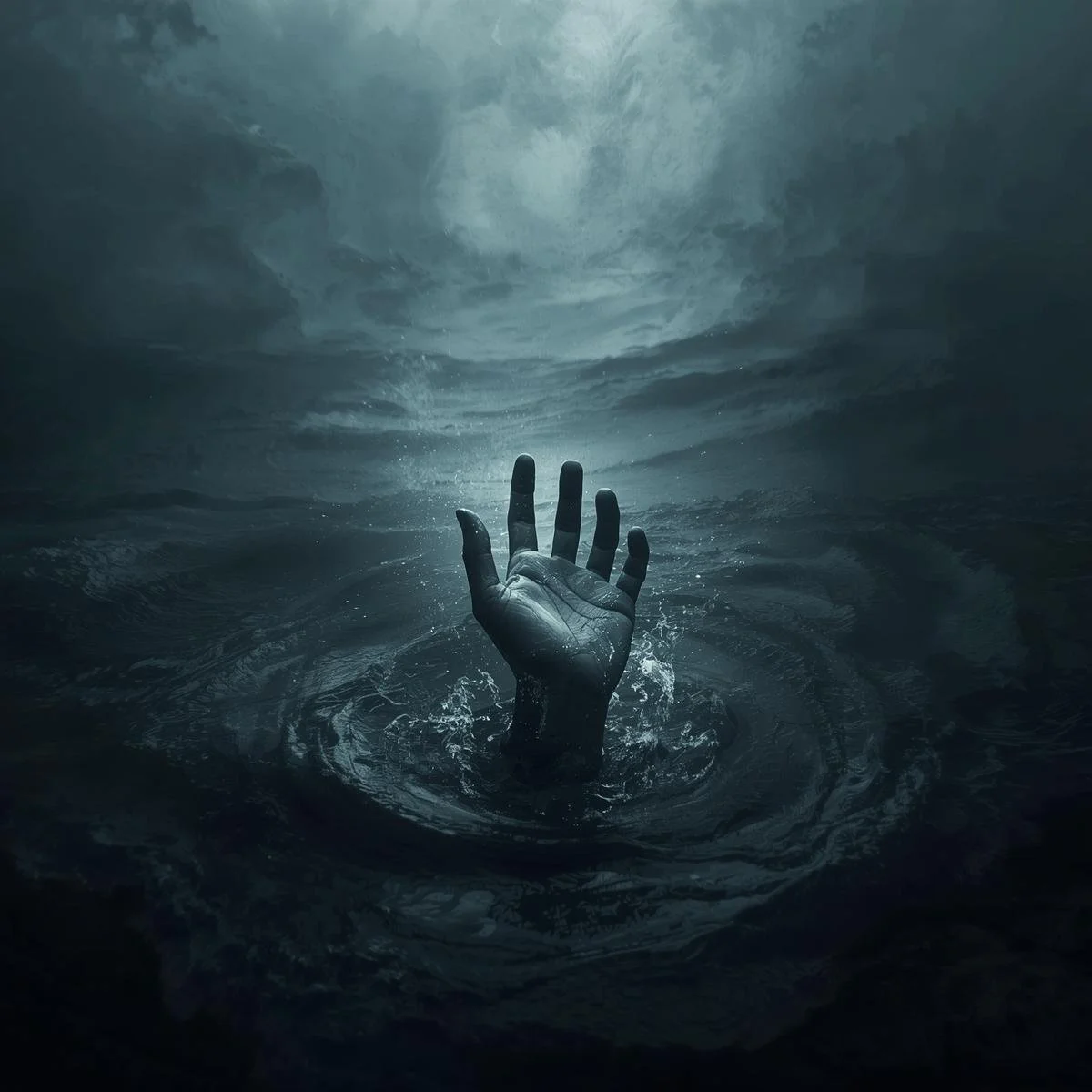
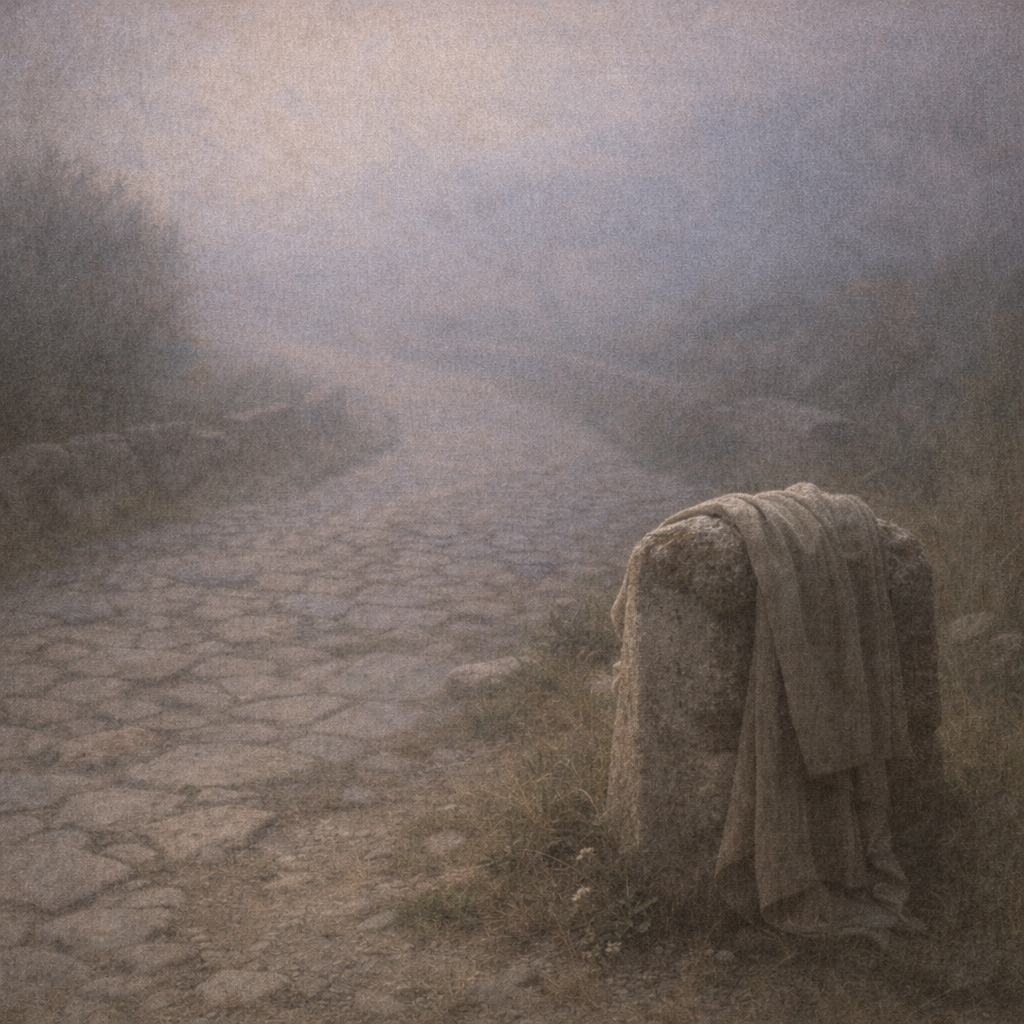


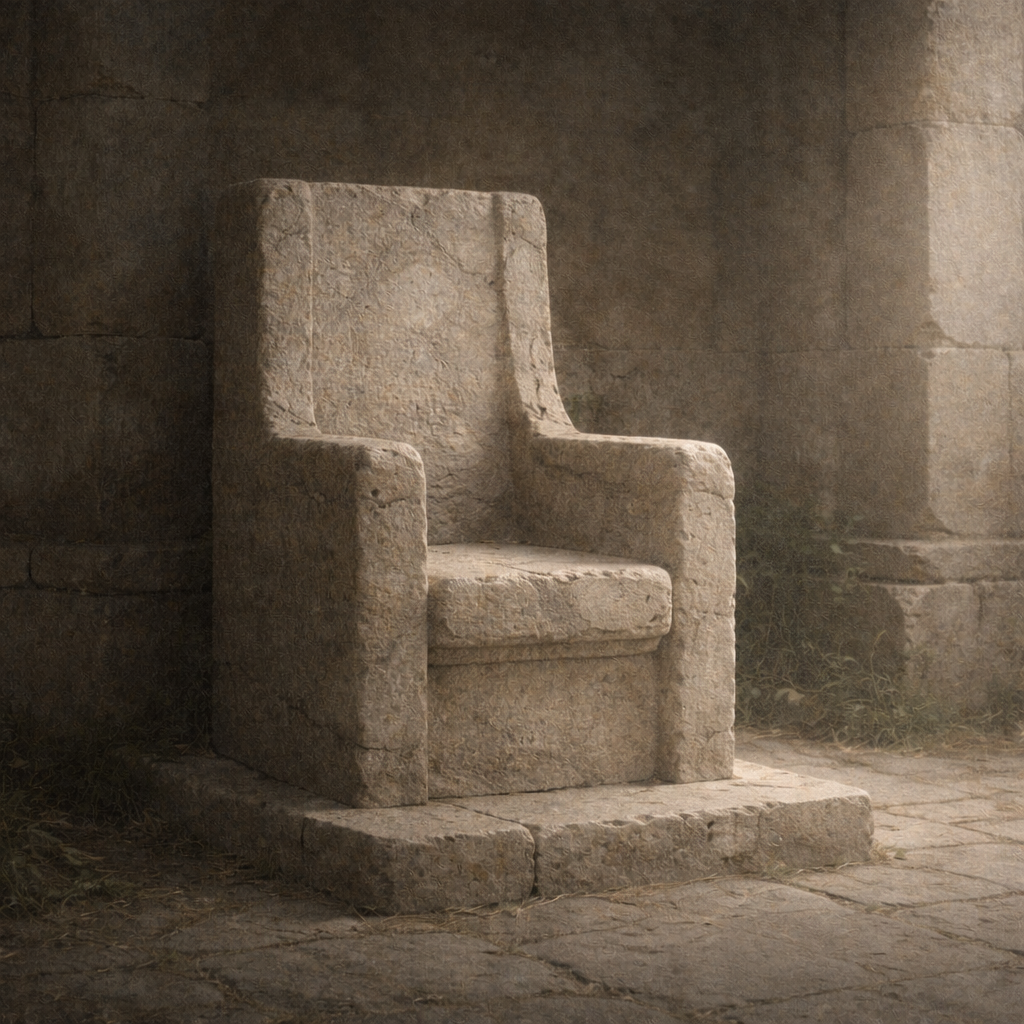
Go Deeper into Mythology Writing
To develop these mythology writing prompts further, encourage writers to look beyond epic battles and divine spectacle. In Greek and Roman mythology, meaning often lies in consequence, sacrifice, and the tension between human choice and fate. Many classical myths gain their power not from action alone, but from what follows — punishment, transformation, remembrance, or loss.
Try deepening the prompts in the following ways:
◆ Rewrite a prompt by removing the gods entirely, focusing instead on how belief, prophecy, or fear of divine punishment shapes human decisions.
◆ Let a mythic setting act as an active force in the story, exploring how temples, rivers, battlefields, or sacred mountains influence memory, loyalty, or moral choice.
◆ Experiment with alternative perspectives, retelling a myth-inspired event through the eyes of a minor character, witness, or someone overlooked by the gods.
◆ Structure a piece around aftermath rather than action, beginning after a bargain is struck, a curse is fulfilled, or a journey ends.
◆ Reimagine a classical myth in a modern setting while preserving its original themes of hubris, justice, sacrifice, or inevitable fate.
These approaches encourage writers to move beyond retelling and into interpretation, helping them create original stories that still honour the structure and meaning of ancient myth.
Final Thoughts
Mythology is not simply a collection of heroic adventures or powerful gods. At its core, Greek and Roman mythology explores enduring human questions — how power is used, what is owed to the gods, how memory survives, and what is lost when fate cannot be avoided.
These mythology writing prompts for teens are designed to help writers engage with classical themes, symbolic settings, and character-driven conflict, while creating original narratives inspired by ancient storytelling traditions. Whether used for short stories, creative warm-ups, poetry, or extended myth retellings, the prompts encourage thoughtful writing grounded in consequence, choice, and transformation.
By working with mythic structures rather than copying specific stories, writers can build confidence in atmospheric writing, symbolism, and narrative voice, developing skills that transfer across genres and forms.
If you’d like to continue exploring different genres, tropes, or seasonal themes, you can browse the full master list of 2,000+ creative writing prompts for teens and discover new directions for your next piece of writing.
Want a new writing spark every single day? My Daily Writing Prompts subscription delivers 365 themed prompts plus editable teacher slides, perfect for keeping creativity flowing all year round.
